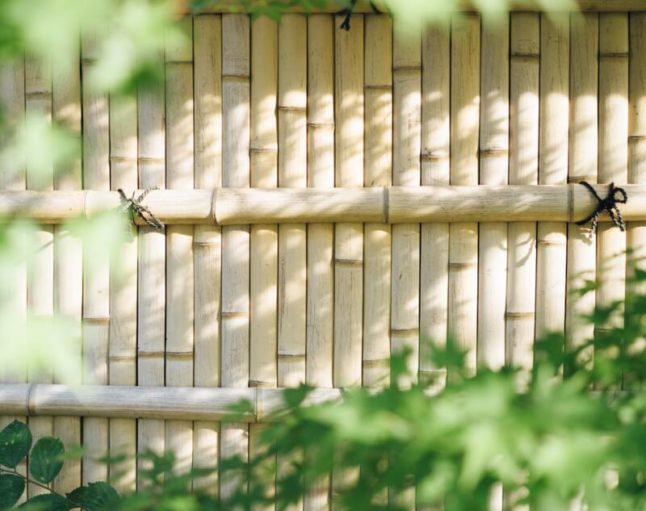Featured
Choosing the best fence for your residential property involves careful consideration of performance, looks, budget plan, and lasting maintenance. Whether you're aiming to improve privacy, enhance aesthetic charm, or secure your building, comprehending your choices will help you make an informed choice. Right here's a comprehensive overview to selecting the perfect fencing for your demands.
![]()
Personal Privacy: Tall, solid fences like wood or plastic are perfect for obstructing visibility. Safety: Durable materials like light weight aluminum or steel supply a secure barrier. Aesthetic Allure: Ornamental fences, such as functioned iron or picket styles, enhance curb charm. Containment: For pets or youngsters, fences like chain-link or plastic are practical options. Noise Reduction: Thick products, such as composite fence, can assist wet noise. Plainly determining your goals will certainly tighten down your options significantly.
Wood: Supplies an all-natural, classic appearance and is highly customizable yet needs normal upkeep. Plastic: Reduced maintenance and resilient yet might have a higher first price. Aluminum: Lightweight, rust-resistant, and elegant, though not ideal for privacy. Chain-Link: Functional and cost effective yet does not have aesthetic allure and privacy. Wrought Iron: Long lasting and attractive however can be pricey and calls for maintenance. Compound: A blend of wood and plastic, supplying resilience with a wood-like appearance. Select a product that aligns with your top priorities and matches your property's style.
![]()
Reduced Upkeep: Plastic, aluminum, and composite fencings require occasional cleaning. Moderate Maintenance: Wrought iron fences might need painting to avoid corrosion. High Upkeep: Wood fencings call for regular discoloration, sealing, or painting. Consider just how much time and initiative you're willing to invest in maintenance throughout the years.
A picket fencing suits a conventional home. A modern residential property might look finest with sleek, minimal secure fencing materials like vinyl or steel. A country residential or commercial property may benefit from rustic wood or split-rail fence. 7. Seek Specialist Advice. Consulting a fence specialist can aid ensure you pick the ideal product, design, and setup procedure for your building. Professionals can assess elements like soil type, environment, and incline to recommend the most appropriate options.
Verdict. Selecting the appropriate fence for your residential property entails balancing capability, visual appeals, and expense. Start by identifying your goals, discovering materials, and thinking about maintenance and spending plan. With thoughtful preparation and professional suggestions, you can locate the ideal fence to improve your building's value, protection, and beauty for many years to find.
- Define Your Purpose. The very first step in selecting a fencing is determining why you need one. Typical objectives consist of:

Personal Privacy: Tall, solid fences like wood or plastic are perfect for obstructing visibility. Safety: Durable materials like light weight aluminum or steel supply a secure barrier. Aesthetic Allure: Ornamental fences, such as functioned iron or picket styles, enhance curb charm. Containment: For pets or youngsters, fences like chain-link or plastic are practical options. Noise Reduction: Thick products, such as composite fence, can assist wet noise. Plainly determining your goals will certainly tighten down your options significantly.
- Take Into Consideration Product Options. Each fence material has unique top qualities, advantages, and downsides. Below's a fast introduction:
Wood: Supplies an all-natural, classic appearance and is highly customizable yet needs normal upkeep. Plastic: Reduced maintenance and resilient yet might have a higher first price. Aluminum: Lightweight, rust-resistant, and elegant, though not ideal for privacy. Chain-Link: Functional and cost effective yet does not have aesthetic allure and privacy. Wrought Iron: Long lasting and attractive however can be pricey and calls for maintenance. Compound: A blend of wood and plastic, supplying resilience with a wood-like appearance. Select a product that aligns with your top priorities and matches your property's style.

- Element in Maintenance Requirements. Various secure fencing materials need differing levels of care:
Reduced Upkeep: Plastic, aluminum, and composite fencings require occasional cleaning. Moderate Maintenance: Wrought iron fences might need painting to avoid corrosion. High Upkeep: Wood fencings call for regular discoloration, sealing, or painting. Consider just how much time and initiative you're willing to invest in maintenance throughout the years.
- Evaluate Your Spending plan. Fence prices include both materials and setup. While chain-link and timber are typically extra budget friendly ahead of time, products like plastic and light weight aluminum might save cash in the long run as a result of reduced maintenance requirements. In addition, factor in possible upgrades, such as gates or ornamental elements, when establishing your budget.
- Check Local Laws and HOA Policies. Before completing your choice, speak with neighborhood zoning legislations and homeowner association (HOA) guidelines. Some locations have height limitations, product restrictions, or style standards that might affect your choice.
- Suit the Fencing to Your Residential or commercial property's Design. The design of your fencing must match your home and landscape. :
A picket fencing suits a conventional home. A modern residential property might look finest with sleek, minimal secure fencing materials like vinyl or steel. A country residential or commercial property may benefit from rustic wood or split-rail fence. 7. Seek Specialist Advice. Consulting a fence specialist can aid ensure you pick the ideal product, design, and setup procedure for your building. Professionals can assess elements like soil type, environment, and incline to recommend the most appropriate options.
Verdict. Selecting the appropriate fence for your residential property entails balancing capability, visual appeals, and expense. Start by identifying your goals, discovering materials, and thinking about maintenance and spending plan. With thoughtful preparation and professional suggestions, you can locate the ideal fence to improve your building's value, protection, and beauty for many years to find.
Latest Posts
Raise Any Type Of Room with Elegant, High-Quality Location Rugs
Published Apr 22, 25
1 min read
The Perfect Flooring for each Home
Published Apr 22, 25
1 min read
Why Trust NAPA AutoCare? Montclare Auto Repair Is Your Trusted Choice
Published Apr 22, 25
2 min read